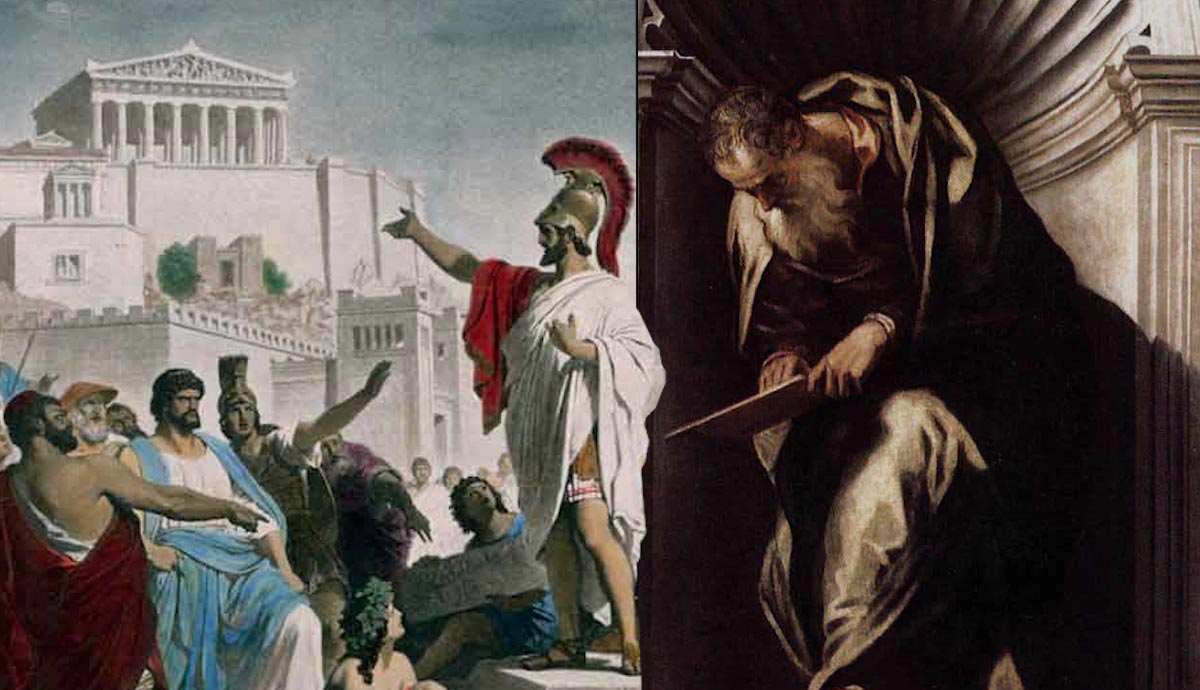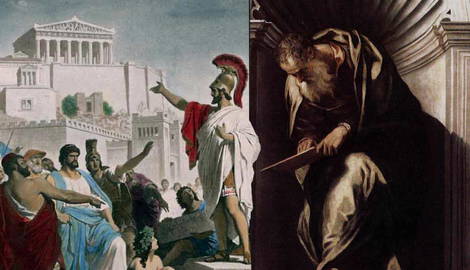
What is the purpose of studying politics and its theory? Who benefits from this knowledge, and how is it useful? This article delves into Aristotle’s insights on these questions. It begins by exploring the role of politics within Aristotle’s broader framework of science and knowledge. We then discuss the political context in which Aristotle’s work should be understood. The article further examines the purpose of political theory, the limitations imposed on governments in their efforts to reshape society, and the significance of Aristotle’s approach to politics.
Aristotle’s Politics in the Context of His Overall Work

Aristotle’s politics must be understood within the context of his division of knowledge into three sciences. First, there are the contemplative sciences, which involve the pursuit of truth or knowledge for its own sake. Next, there are the practical sciences, which aim to define what the right course of action is in different contexts. Lastly, there are the productive sciences, which involve the literal creation of objects.
Politics firmly belongs to the realm of the practical sciences. In fact, politics is characterized as governing all other practical sciences, such as military science, household management, and rhetoric. While it may seem unusual to consider any of these, especially rhetoric, as a form of science, it is important to grasp that for Aristotle, “science” primarily refers to an organized body of knowledge. Therefore, in principle, any field can be studied scientifically.
The Relevance of Athenian Politics

Just as we need to understand Aristotle’s politics in the context of his broader thought, it is also important to consider the political backdrop of the time. Much of Aristotle’s career unfolded in Athens, where he studied at Plato’s Academy, established his own school, and likely wrote many of the Aristotelian texts we have today in order to lecture and teach based on them (some of them remain to us in the form of notes).
The philosophical activity in Athens, particularly the theorization of politics, must be understood against the backdrop of the remarkable democratic structures of government that existed during that period. Let’s summarize the Athenian democratic system and its function.
The purpose of Athenian democracy was to establish a government system in which eligible citizens could directly participate in the decision-making process. It is noteworthy that citizenship was the primary criterion for political participation. Anyone who was a citizen could, and was encouraged to, participate in the democratic process. However, citizenship was restricted to males of age who had property.
One of the central features of Athenian democracy was the Assembly, the main body responsible for decision-making. It consisted of all eligible male citizens who had the power to discuss and vote on matters such as laws, policies, and significant issues. The “Council of the 500” was responsible for preparing the Assembly’s agenda and implementing its decisions. Council members were selected through a lottery system to ensure broad citizen representation.
The Athenian judicial system comprised courts where citizens served as jurors. These courts heard cases and made judgments, including decisions on criminal matters and lawsuits. Overall, Athenian democracy aimed to provide eligible citizens with a voice in the governance of the city-state. Its objectives were to promote equality, prevent the concentration of power, and involve citizens in decision-making processes.
1. What Is the Purpose of Political Theory?

Aristotle draws an analogy between political science and the medical sciences. Political science is the body of knowledge that politicians can draw on when making political decisions in much the same way that medical science represents the body of knowledge that doctors use when making diagnoses and performing surgeries.
According to Aristotle, politicians are primarily engaged in the formulation of laws, the development of legal and political customs, and the establishment of institutions on one hand, while on the other, they engage in the maintenance of such laws, customs, and institutions.
Another recurring analogy in Aristotle’s political writings is the comparison between the politician and the craftsman. While craftsmanship predominantly falls within the domain of productive sciences rather than practical sciences (such as politics), it is relevant because politics adheres to certain universal principles that act as constraints on the extent to which politicians can reshape society.
Before delving into the details of these constraints, it is essential to understand a fundamental Aristotelian concept: causation. Aristotle identifies four types of causation. The material cause pertains to the substance things are made of, such as clay for a pot. The formal cause refers to the shape or form of the pot. The efficient cause represents the agent or force that brings about the creation of the pot. Lastly, the final cause indicates the purpose or function of the pot, such as containing liquid. This theory of causation applies to politics in a particularly direct and illuminating way.
2. Applying the Four Aristotelian Causes to Politics

As we mentioned, there are four causes for any single thing in Aristotle’s view: the material, formal, efficient, and final cause. The citizens, the land, and the available resources constitute the material cause of the polity.
Aristotle defines the formal cause of a polity as “a certain ordering of the inhabitants of a city-state,” namely, what we would nowadays refer to as “the constitution.” Much of modern political theory can plausibly be traced back to this ur-focus on the constitution, which provides the theoretical basis for a state. It serves as an explicit statement of the fundamental principles underlying a state.
The ruler, or in states with multiple rulers, the sovereign body, acts as the efficient cause. They establish the constitution and wield the operative and decisive force within the state. The final cause of the state, which Aristotle considers crucial in politics, is to provide a good life for all its members. This claim seems fairly uncontroversial. The political community, being the supreme kind of community for Aristotle, can pursue this final cause to the fullest extent. Since every community aims for some good and the political community holds the highest authority, politics should strive for the highest possible good, according to Aristotle.
One significant implication is that the state’s authority is derived from the good it can accomplish. In other words, the state’s authority does not simply justify itself, nor is it justified on theological grounds (such as the divine right of rulers, which is one of the most common justifications for state power in many parts of the world).
3. Aristotle on the Limits of State Power

The city-state, borrowing from Fred Miller’s terminology, can be considered a “hylomorphic compound.” Understanding Aristotle’s perspective hinges crucially on the term “hylomorphic,” which broadly refers to the concept of something having both a formal component and a material component, or being a specific form shaped from a particular material.
One significant implication of conceiving the political in this manner is that positing it to have a material element with its own properties places limits on what governments can reasonably hope to achieve. In other words, there are limits to how far governments can change the societies they govern, and these limits are not solely ethical but also a matter of natural possibility. The legislator should not cause the government to act in a way that goes against the nature of the citizens.

This view can be interpreted as an implicit critique of Plato’s theory of politics, which was utopian in the sense that it presupposed the state could impose extensive social changes affecting every aspect of citizens’ lives. At certain points, Aristotle explicitly draws a distinction between the personal and the political, arguing that it is a natural fact about human beings that they pay the most attention to their own property and less to communal matters (except when communality is directly beneficial to them).
To expand on this point, whereas Plato’s conception of politics broadly assumes that the state should do whatever would hypothetically be better for it (and therefore can do so), Aristotle asserts that understanding what the state can do requires us to first give an account of human nature. These represent two distinct species of political theory, both of which have their modern equivalents. Questions concerning the malleability of human nature will inevitably interact with questions about the totalization of the political. Aristotle asserts that there is a political realm, which is of utmost importance in life, but it is not the entirety of life and, under ordinary circumstances, should not seek to become so.










